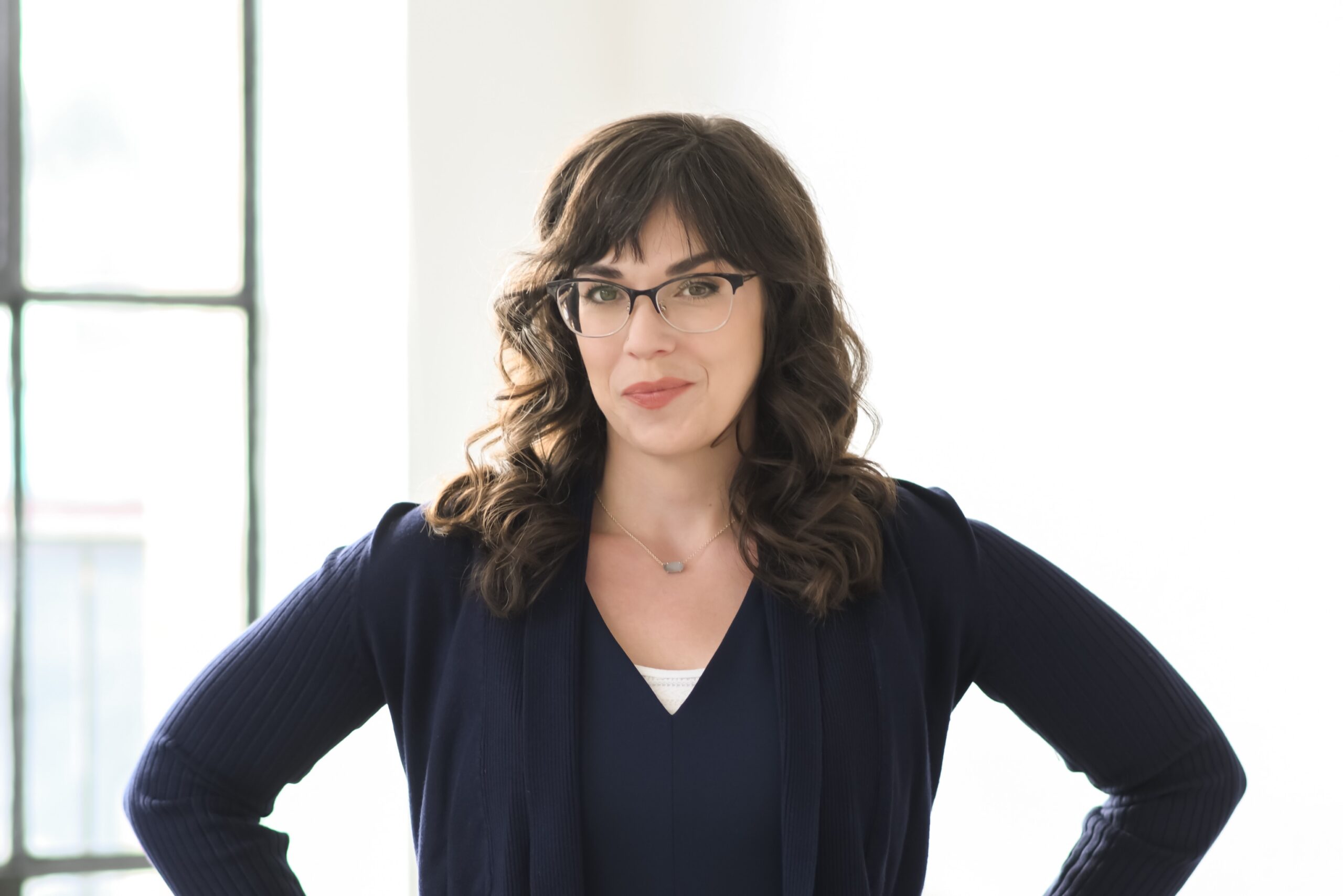Compassionate, Experienced Psychologist in Myrtle Beach, SC
 You’re doing your best to keep it together. You show up. You work hard. You care a lot—maybe too much sometimes. But inside? You’re fried. Tired down to your bones. And wondering, “Is this just… life now? Is this burnout? Or am I just bad at being a person?”
You’re doing your best to keep it together. You show up. You work hard. You care a lot—maybe too much sometimes. But inside? You’re fried. Tired down to your bones. And wondering, “Is this just… life now? Is this burnout? Or am I just bad at being a person?”
If you’re quietly asking yourself those questions at 2 a.m. while Googling “psychologist Myrtle Beach SC,” (or Portland, OR) welcome. I’m Kit Sluys, a licensed psychologist who helps overachievers, anxious professionals, and caretakers find their way back to sanity (and even joy).
You’re not broken. You’re just exhausted. And you don’t have to do this alone.
When “Fine” is a Total Lie
Let’s be real: If someone asks how you’re doing, you say “I’m fine.” But you’re not fine. You’re holding it together with caffeine, calendar reminders, and the sheer force of willpower. You’re checking boxes, meeting deadlines, remembering everyone’s birthdays—but inside, you feel like a balloon about to pop.
The worst part? You feel like you should be able to handle it all. Other people seem to. So why do you feel like you’re barely staying afloat?
And heaven forbid anyone actually sees how stressed you are. What if they think you’re weak? What if they don’t get it? Or worse… what if they do, and still don’t care?
You’re tired of pretending. You just want to feel like yourself again—even if you can’t remember exactly who that is.
 You Don’t Need to Be “Fixed”—You Just Need a Break (and Some Support)
You Don’t Need to Be “Fixed”—You Just Need a Break (and Some Support)
Let me guess—you’ve tried it all: podcasts, meditation apps, yoga, journaling, deep breathing, stress balls, vision boards. Maybe even rage-cleaning your kitchen. And sure, those things help a little. But they don’t get to the root of why you’re constantly overwhelmed or why you feel guilty for having needs at all.
That’s where therapy comes in. Not the “lay on a couch and talk about your childhood for 10 years” kind. I mean real, practical, deeply supportive therapy that actually helps you feel better and live better.
I help people like you learn how to:
-
Set boundaries without spiraling into guilt
-
Feel your feelings without drowning in them
-
Let go of perfectionism (yes, even you)
-
Stop saying “yes” when you mean “no”
-
Sleep, rest, and eat in ways that don’t feel like a punishment
-
Actually enjoy being alive again
Sound good? Let’s talk.
 Meet Your New Therapist (Hi, That’s Me)
Meet Your New Therapist (Hi, That’s Me)
I’m Kit. I’m a psychologist in Myrtle Beach, SC (also serving folks in Oregon), and I work with humans who look like they have it all together on the outside but are secretly hanging by a thread on the inside.
I specialize in high-functioning anxiety, burnout, and all the weird and wonderful ways people try to survive a world that tells us to go faster, try harder, and never rest. My approach is compassionate, honest, and a mix of woo with science backed nerdiness. (I love the science of how our brains and bodies respond to stress—and how we can help them chill out.)
I’m not here to “fix” you. You’re not broken. I’m here to help you understand yourself, unlearn the stuff that isn’t serving you, and build a life that actually feels good.
Who I Work With
Most of my clients fall into the category of “high-functioning but secretly unraveling.” You might be:
A professional juggling way too many plates (and occasionally dropping one)
A parent who’s been running on fumes since 2020
A perfectionist who feels like “rest” is a four-letter word
A people-pleaser who says “yes” while screaming “no” internally
A sensitive soul who feels everything and doesn’t know how to turn it down
If you’re constantly anxious, overthinking every conversation, or waking up tired no matter how much you sleep, you’re not alone. And no, this doesn’t have to be your “normal.”
Holistic Therapy in Myrtle Beach (Because You’re More Than Just a Brain)
When I say “holistic,” I don’t mean we’re going to sage your aura and talk to your inner child exclusively (unless you’re into that—we can totally incorporate these things!). I mean that you’re a whole person, and your mental health is connected to your body, your relationships, your values, and yes, even your sleep schedule.
In our work together, we’ll look at:
-
The stories you tell yourself (spoiler: not all of them are true and many aren’t helping you)
-
How your nervous system responds to stress (and how to help it calm down)
-
Your patterns in relationships (including the one with yourself)
-
Your goals, values, and how to actually live in alignment with them
Basically, we’ll get curious about what’s going on under the surface—without shame or blame. And we’ll build tools that work for you, not some hypothetical perfect person who gets up at 5 a.m. to journal and do Pilates (no shade if that is you).
Therapy That Doesn’t Just Nod and Say “Hmm…”
If you’ve been to therapy before and felt like your therapist just smiled and nodded while you emotionally spiraled… I get it. That’s not how I roll.
Clients tell me they appreciate that I offer actual tools—not just passive listening. Yes, we’ll talk. But we’ll also do.
I’ll help you:

Learn nervous system regulation techniques that actually help
Practice self-compassion that feels real, not cheesy
Develop boundaries and scripts for tough conversations
Spot the difference between your intuition and your anxiety
Rewrite the old stories keeping you stuck
It won’t always be easy. Sometimes growth is uncomfortable (kind of like jeans after a holiday weekend). But I promise it will be worth it—and you’ll never go through it alone.
What Clients Say (Spoiler: It’s Not Just “Thanks, Doc”)
Over the years, clients have told me things like:
-
“I didn’t know therapy could feel like this.”
-
“You gave me actual tools I can use.”
-
“I finally feel like myself again.”
-
“This is the first time I’ve felt understood.”
-
“I laughed more than I expected. And cried. But in a good way.”
That’s the magic of therapy done right. It’s not just venting. It’s transforming. It’s becoming who you were meant to be—underneath the stress, the anxiety, the pressure to be everything to everyone.
Your Needs Matter (Even If You’ve Been Taught They Don’t)
You’ve spent so long taking care of everyone else. You’ve probably convinced yourself you don’t have the time, the energy, or the right to ask for support.
Let me be the one to say: That’s nonsense. You can’t keep pouring from an empty cup. Eventually, you’re just throwing mugs at people and hoping for the best.
Your needs matter. Your healing matters. And therapy can help you finally believe that—not just intellectually, but in your bones.
Looking for a Psychologist in Myrtle Beach, SC? (Or Portland, OR)
If you’re here, you’re probably ready for something to change. You might not know exactly what needs to shift yet—but you know this isn’t sustainable. I’d love to walk with you through the messy middle. The place where you start to untangle your thoughts, feel your feelings, and build a life that feels more like you.
So if you’re looking for a psychologist in Myrtle Beach, SC who’s compassionate, grounded, smart (but not snobby), and easy to talk to—I think we might be a great fit.
Reach out today to schedule a free 15-minute consultation. We’ll spend 15 minutes on the phone and I’ll let you know if I can help. If I’m not the right person, I’ll do my best to get you to the right person.
Because life’s too short to be this stressed all the time.
Click below to schedule therapy with me, Kit Sluys, in Myrtle Beach, SC or by telehealth in OR. My specialties include high functioning anxiety, therapy for women, and therapy for professionals.
Frequently Asked Questions about seeing a Psychologist in Myrtle Beach, SC
When should I see a psychologist – There are many reasons to see a psychologist. To list a few, persistent feelings of sadness or anxiety, coping with major life changes, feeling overwhelmed or out of control, physical symptoms like stomach ache or headache that medical tests don’t explain, relationship struggles, being hard on yourself, difficulty making decisions, difficulty concentrating, or a desire to understand yourself or grow in some way. Still not sure? Schedule a free consultation with me below to assess your needs.
Is it worth going to a psychologist? – There are so many benefits to seeing a psychologist. If you see value in any of the following, seeing a psychologist may be worth it. Those benefits include, but are not limited to: Understanding yourself better to be able to make better decisions, improved mental health, learning healthy coping tools, getting better at communicating your needs and understanding others, improved relationships, feeling more in-control of your life, feeling inner peace, getting safe and non-judgmental support, feeling empowered and boosted confidence, navigating difficult situations, and preventing something from becoming a bigger problem.
What is the difference between a therapist and a psychologist? – People often use these terms interchangeably. All psychologists are therapists but not all therapists are psychologists. Here are some key differences.
Education and credentials – Psychologists typically hold a doctoral decree and have extensive training in diagnosing, psychological theory, research, and clinical practice. Psychologists may conduct psychological testing and assessment. Therapists typically hold a master’s degree and the term may refer to counselors, social workers, or marriage and family therapists. Therapists provide counseling and therapy but may or may not have the extensive training in psychological assessment or research.
Licensing – While both therapists and psychologists are required to be licensed in the state they practice in, the licensing requirements for their licensing exam, education, and supervised clinical hours are different, often the requirements for psychologists are more extensive.
Areas of specialization – Psychologists can specialize in clinical psychology (like me), neuropsychology, forensic psychology, or other areas of psychology. Clinical psychologists get training on assessing and treating a a wide breadth of mental health conditions. Therapists may specialize in marriage and family therapy, career counseling, addiction counseling, trauma therapy and they tend to focus on everyday challenges and personal development.
Medication management – Neither psychologists nor therapists can prescribe medications (except in a few states where psychologists can prescribe with additional certification), but both will often work alongside prescribers.
Who goes to see a psychologist? – There are many reasons people will seek out psychological help. Everything from everyday relationship stress to severe mental illness. Other reasons might includes couples facing relationship difficulties, children, folks who have a trauma history, folks with substance use problems or eating disorders, and people with health-related stress. I work most often with high achievers and professionals who struggle with people pleasing and perfectionism. I help people who may or may not have a diagnosable mental illness but are also very motivated to achieve personal growth.
Take the first step toward lasting emotional well-being. Schedule your consultation with our compassionate Myrtle Beach psychologist today!.
Call or text (971) 245-2402 now to set up your free 15-minute consultation or

